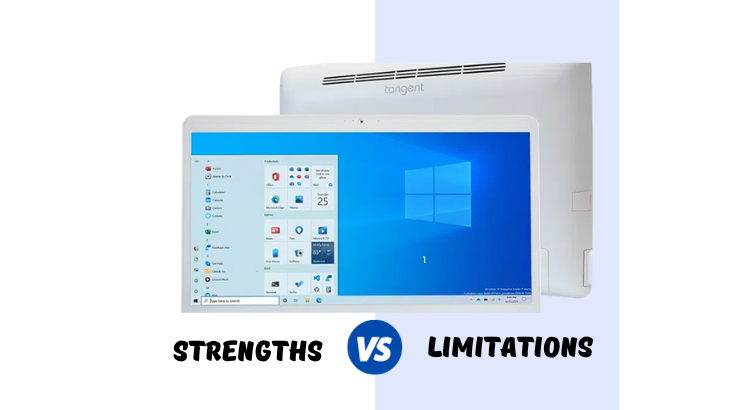The National Library of Medicine, has a publication titled, “APPLICATION OF COMPUTER TECHNIQUES IN MEDICINE”. The article mentions the several applications and limitations of computers.
Medical computers have become vital tools in the field of medicine, greatly impacting patient care, research, and healthcare administration. However, like any technology, they come with strengths and limitations.
Strengths:
- Efficiency and Accuracy: Medical computers can quickly process vast amounts of data and provide precise results. This is particularly beneficial in tasks like medical imaging, diagnostics, and treatment planning.
- Data Storage: Medical computers can store patient records, medical histories, and research data in electronic health records (EHRs). These records are easily accessible and can improve patient care by providing a complete medical history.
- Telemedicine: Medical computers enable telemedicine, allowing healthcare professionals to remotely diagnose and treat patients, increasing access to care, especially in remote or underserved areas.
- Research and Data Analysis: Medical computers help researchers analyze vast datasets, simulate medical conditions, and discover new treatments. They play a vital role in genomics, drug discovery, and epidemiological studies.
- Decision Support Systems: Medical computers assist healthcare professionals in making clinical decisions, providing recommendations based on medical knowledge and patient data.
- Medical Imaging: Medical computers are crucial in processing and interpreting medical images like X-rays, CT scans, and MRIs. They enhance the precision of diagnoses and assist in minimally invasive surgeries.
- Robot-Assisted Surgery: Medical computers enable robotic systems to assist surgeons in performing highly precise procedures, reducing invasiveness and recovery time.
To paraphrase the article regarding limitations:
Computers offer remarkable capabilities for data storage and complex analysis, but their limitations include the absence of decision-making abilities and human-like sensitivity, making data entry a challenge for medical professionals. Computer viruses, such as Joshi, Michael Angelo, DirII, and India, pose threats by multiplying through program usage and destroying files and data. Antivirus programs like Scan, CPAV, and Norton exist to combat these threats, though complete virus eradication remains challenging due to ongoing developments. Initiatives like the Faculty of Computers at the Military College of Telecommunications in Mhow provide computer courses to enhance computer literacy, but a noticeable gap persists in the adoption of clinical computing systems in the medical field. While these systems can address issues associated with traditional medical records, their implementation has been slow. There is an urgent need to raise computer awareness among medical professionals, encouraging them to familiarize themselves with computer applications in medicine and maximize their utility.
Here is a list of hospital computer limitations:
Limitations:
Data Security and Privacy Concerns: Storing sensitive patient information electronically on medical computers poses security risks, with the potential for data breaches and privacy violations.
Cost: Implementing and maintaining medical computer systems in healthcare can be expensive. Smaller medical facilities may struggle to invest in advanced technology.
Learning Curve: Healthcare professionals need to adapt to new medical computer technologies and software, which can be time-consuming and occasionally challenging.
Data Overload: The vast amount of medical information available can be overwhelming, leading to “alert fatigue” in clinical decision support systems, where healthcare providers may ignore important alerts.
Diagnostic Errors: While medical computers can enhance accuracy, they are not infallible. They may misinterpret data or images, leading to diagnostic errors if not used judiciously.
Reduced Patient Interaction: As medical computer technology advances, there’s a risk of reduced face-to-face patient interaction, which is an essential aspect of healthcare.
Uneven Access: Access to advanced medical computer-based healthcare services can be unequal, disadvantaging individuals in underserved or remote areas with limited connectivity.
Medical computers have revolutionized medicine, offering efficiency, data management, and diagnostic support. However, their use in healthcare also raises concerns about data security, cost, and the potential for reduced human interaction. Balancing these strengths and limitations is essential to ensure that medical computer technology in medicine serves the best interests of both healthcare providers and patients.
Tangent is the forefront pioneer of medical computers. Tangent carefully engineers computers while taking into consideration possible limitations.
